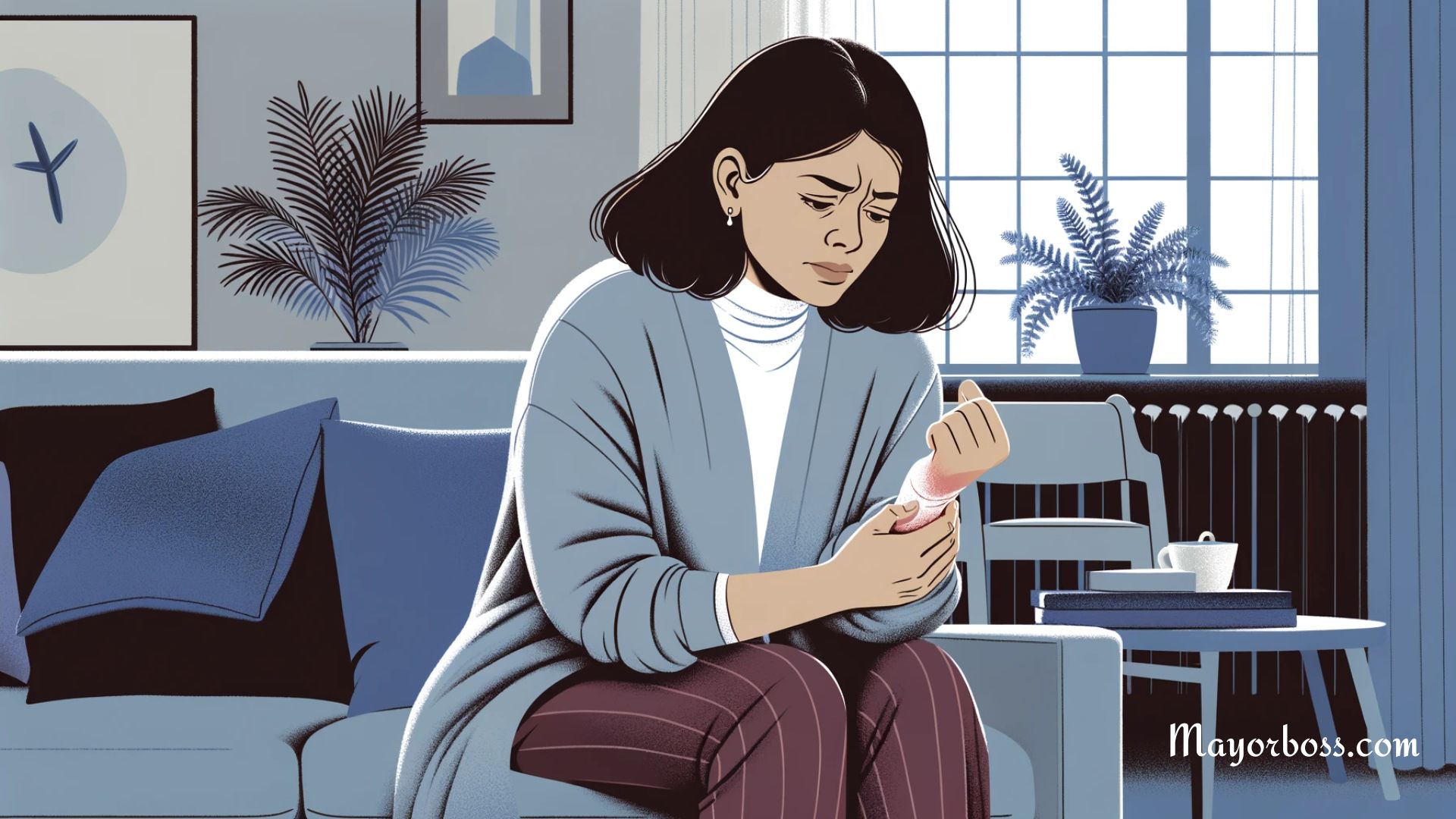Psychotherapists Warn That Rebecca Syndrome Might Be Killing Your Relationships
Relationships can be hard, and let’s be honest, we all have our quirks. But sometimes, certain behaviors can quietly hurt our relationships without us even realizing it. One of these issues is called “Rebecca Syndrome.” You might not have heard of it, but it’s becoming more common in relationships today. It might even be what’s causing problems between you and your partner.
Rebecca Syndrome is named after the classic 1938 novel Rebecca by Daphne du Maurier, which was later made into a famous movie by Alfred Hitchcock. The story follows a young woman who marries a wealthy widower, only to find herself haunted by the memory of his first wife, Rebecca, whose presence seems to linger over everything. This feeling of being overshadowed by someone from the past is what inspired the name of the syndrome.
This syndrome is all about feelings of jealousy and obsession towards a partner’s ex. These feelings can grow silently and can be just as harmful as other relationship problems. Today, we’ll look at how Rebecca Syndrome works, what therapists say about it, and what you can do to keep it from hurting your relationship.

What Is Rebecca Syndrome?
Rebecca Syndrome isn’t an official medical condition, but many therapists say it’s a very real problem. Basically, it’s about being overly obsessed with your partner’s past relationships—especially their ex. This obsession can lead to jealousy, fear, and negative behaviors. The idea is that the person with Rebecca Syndrome can’t stop comparing themselves to their partner’s ex.
When someone has Rebecca Syndrome, they might constantly feel as if their partner’s ex is in the background, overshadowing them. It can feel like the ex is still part of the relationship, making them feel like they’re never good enough. This can lead to jealousy, insecurity, and even resentment toward both the ex and the current partner.
Therapists say that these feelings are often caused by insecurity—a fear that maybe your partner loved their ex more or that you can’t measure up to the ex. It becomes a cycle that’s hard for many people to break.
Psychotherapist Toby Ingham told MailOnline, “While these early problems will be unique to each of us, they may, for example, relate to our having felt overlooked by a parent who preferred one of our siblings to us.”
He continued, “Or perhaps these issues relate to problems feeling we were unimportant or excluded in our birth family.” Ingham added that people often project their insecurities and personal issues into their present relationships, which can harm the dynamic.
He suggested, “Ask yourself whether your anxiety—your intrusive thoughts about feeling less important to your partner than their former partner—may really relate to your own past, rather than having anything to do with your current relationship.”
How Rebecca Syndrome Shows Up in Relationships
Rebecca Syndrome doesn’t always come out in obvious ways. Instead, it often sneaks in as small signs, like feeling uneasy when your partner talks about their past or having a sudden urge to check their social media. These signs can get worse if left unchecked. Here are some ways it can show up in your relationship:
- Constant Comparisons: You find yourself comparing your looks, personality, or even your job with your partner’s ex. You might ask questions like, “Was she more fun?” or “Did he make more money?”
- Snooping for Information: You might feel the need to gather information about the ex—from social media stalking to looking at old pictures or messages. This usually leads to more anxiety, not answers.
- Putting Down the Ex: If you catch yourself making negative comments about your partner’s ex or questioning your partner’s past choices, it might be a sign of Rebecca Syndrome. This is often an attempt to feel better by tearing down your “competition.”
- Constantly Asking About the Ex: Asking a lot of questions about the ex—their likes, dislikes, why they broke up, and so on—is another sign. If you’re always bringing up the past, it can create a negative mindset.
Therapists warn that these behaviors can lead to mistrust, resentment, and emotional distance between you and your partner. Over time, what started as curiosity can turn into toxic behavior that harms your relationship.
The Effects of Rebecca Syndrome on Relationships
Rebecca Syndrome is harmful because it’s based on insecurity and a lack of trust. Trust is the foundation of any strong relationship, and obsessing over a partner’s past can weaken that foundation. Here are some potential effects:
- Emotional Distance: If your partner feels like they’re always being judged for their past, they may start to shut down emotionally to protect themselves. This distance can make it hard for your relationship to grow.
- Resentment: If someone is constantly being compared or questioned, resentment is likely to build up. Your partner may start to feel like they can’t do anything right and that they’re always being judged.
- Low Self-Esteem: Comparing yourself to someone else all the time can be exhausting and damaging to your self-esteem. You may feel less worthy of your partner’s love, which can cause even more relationship issues.
Therapists say that if Rebecca’s Syndrome isn’t addressed, it can lead to the end of relationships that could have been healthy. Couples can start addressing it early by recognizing the warning signs and having honest conversations about their feelings. Seeking support from a therapist can also help prevent these issues from escalating. It’s important to recognize the signs early and take steps to fix them.
Why Do People Get Rebecca Syndrome?
According to therapists, Rebecca’s Syndrome often comes from a fear of being abandoned, insecurity, or even past bad experiences in relationships. If you’ve been hurt before, you might be extra anxious about whether your partner still has feelings for someone from their past. These fears can lead to jealousy and comparisons.
Attachment styles also matter. People with an anxious attachment style are more likely to feel this way because they tend to overthink and worry about not being good enough. In a way, focusing on the ex might seem like a way to “solve” the insecurity—as if understanding everything about the past will make you feel more secure now. But that rarely works.
Therapists also say that social media plays a big role in making these feelings worse. With easy access to your partner’s digital past, it’s tempting to go down a rabbit hole of comparisons. And the more you look, the worse you feel.
How to Overcome Rebecca Syndrome
The good news is that Rebecca Syndrome doesn’t have to ruin your relationship. With some work, it’s possible to overcome these feelings and build a healthier bond. Here’s what therapists recommend:
Build Your Self-Worth and Confidence
Rebecca’s Syndrome comes from insecurity. Building your self-worth can help quiet those jealous thoughts. Focus on what makes you special and what you bring to the relationship. Remember, your partner chose you for a reason—not their ex.
Talk Openly with Your Partner
Honesty is important. If you’re feeling insecure or jealous, talk about it with your partner—but try not to blame them. Explain how you’re feeling without accusing them of anything. This helps your partner understand you better and support you instead of feeling attacked.
Stop Snooping and Comparing
It can be hard to stop comparing yourself to the ex, but it’s important to make a conscious effort to do so. Remember that everyone is unique, and comparisons are pointless. If you find yourself digging for information about the ex, ask yourself: “Is this helping me or hurting me?”
Get Professional Help
If these feelings are becoming too much to handle on your own, think about talking to a therapist. Cognitive Behavioral Therapy (CBT) can be very helpful for managing obsessive thoughts and developing healthier patterns. A therapist can also help you understand any deeper insecurities that might be feeding these feelings.
Conclusion: Don’t Let the Past Ruin the Present
Rebecca Syndrome might not be as well-known as other relationship problems, but it can be just as damaging. Jealousy, insecurity, and obsessing over a partner’s past are not only painful for you but can also hurt the person you love and damage your relationship. Recognizing these feelings, being open about them, and taking action are all important steps to move past Rebecca Syndrome.
Keep in mind that every relationship has ups and downs, and no one has a perfect past. The goal is to focus on what you have now and work on building a happy future together. Let go of the “ghost” of Rebecca and focus on the love, trust, and understanding that can make your relationship stronger than ever.





